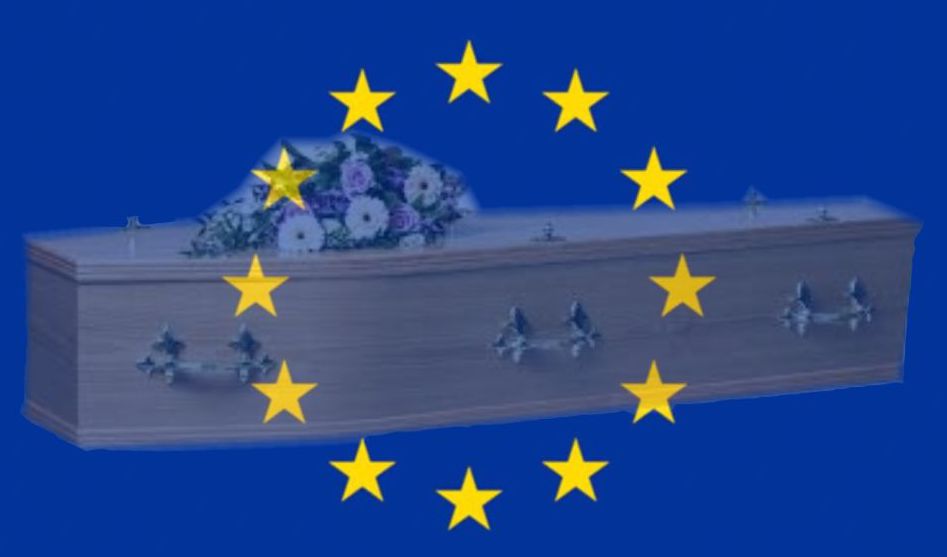Irish Independent Thursday 26 October 2017 (Pages 1, 2, & 3)
Health 'timebomb' as number of over-65s to explode by 2030
Elish O'Regan Health Correspondent
BREXIT will be a key factor in driving the country's population up by 1.1million people, a new report predicts today. The ballooning population will put an unprecedented strain on hospitals and community services. The population is set to grow by up to 1.1million by 2030 and, by then, over-65s will account for one in six people. The demands of a population boom and longer life expectancy mean the health service will be under increased pressure for extra hospital beds and home help hours. The projections are unveiled today in a new ESRl report, 'Projections of Demand for Healthcare in Ireland 2015-2030'. A combination of factors including our birth rate, immigration and Brexit could see our population rise by between 640,000 and 1.1 million in just 13 years. The report says. Brexit and what will happen to future EU migration is an"uncertainty".
The report points to arguments that Brexit could divert immigration to Ireland from the EU that would otherwise go to Britain. "Good English language skills are a valuable form of human capital and this factor, combined with Ireland's favourable growth prospects, may mean potential EU migrants will be willing to move to Ireland if they are no longer able to go the UK," the report said.
The researchers predict net immigration of around 39,000 a year up to 2021 and 28,000 per annum thereafter. The report also says we will live longer over the coming decades. An Irishman's life expectancy in 2030 will be 82.9 years, up from 78.4 years in 2011. Women will also see their life expectancy increase to 86.5 years, compared to 82.9 in 2011. The numbers of people aged over 85 will double over the coming decade and a half - with major health implications.
IRELAND'S ballooning population is set to put an unprecedented strain on hospitals and community services. The population is set to grow by another 1.1 million by 2030 and, by then, over-65s will account for one in six people. The demands of a population boom and longer life expectancy means the health service will be under increased pressure for extra hospital beds and home help hours.
The projections are unveiled today in a new ESRI report, 'Projections of Demand for Healthcare in Ireland 2015-2030: The number of people aged 85 will almost double and the biggest pressures on the health service will be felt in services for older people.
The report charts how this will push up the need for extra hospital beds, home helps, nursing home places and GP care. Demand for inpatient hospital beds will increase by between 32pc to 37pc - up from 3.27 million in 2015. GP visits will soar by between 20pc to 27pc. The scale of extra home help hours needed could be as much as high as 54pc higher than the 14.3 million used in 2015. . "Home care packages are projected to show the greatest increase in demand of 66pc, reflecting a high level of unmet demand:' states the report. This is because more of us will want to spend our retirement living at home - but support is essential to achieve this aim. More public health nurses are also crucial to homecare.
Meanwhile, the number of older people in nursing homes Will increase by 54pc. Lead author Dr Maev-Ann Wren said: "This research shows expansion will be required in most forms to meet the needs of a rapidly growing and ageing population," A combination of factors including our birth rate, immigration and even Brexit could see our population rise by between 640,000 and 1.1 million in just
13 years. "Good English-language skills are a valuable form of human capital and this factor, combined with Ireland's favourable growth prospects may mean potential EU migrants will be willing to move to Ireland if they are no longer able to go the UK,"the report said.
The full picture has yet to emerge because the researchers had to base their figures on estimates because of a lack of key data. These include the number of visits we make to GPs and how much a person's health costs, based on their age. However, the forecast has good news as more of us will enjoy our golden years for longer. An Irishman's life expectancy in 2030 will be 82.9 years, up from 78.4 years in 2011. Women will also see their life expectancy increase to 86.5 years, compared to 82.9 in 2011. The historic life expectancy gap between the sexes will also narrow.
The over-65s currently account for around 13pc of the population but in 2030 they will make up 18pc. Longer life,however, will not shield us from long-term diseases, creating a public health challenge. These include heart disease, respiratory conditions and diabetes. The scale of the demands ahead comes against the current record hospital waiting lists, a fall in hospital beds and 'a shortage of nurses and GPs in 2017. It emphasises the urgency to move more care into the community but also increase investment in hospitals which will be swamped.
Commenting on the report, which will be given to the Department of Health and form part of the mapping of services for the future, Health Minister Simon Harris said: "I have long been of the view that we need to increase capacity in our health services, but that this must be done in an evidence-based manner. "I welcome the development of the underlying projection model upon which the analysis and findings are based."
He is currently waiting for a review that will say how many more beds in hospitals and other services are needed. This is due at the end of the year but is likely to take time to implement because of the expense involved, leaving hospitals under ongoing pressure this winter.

